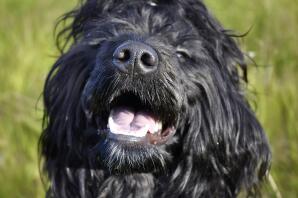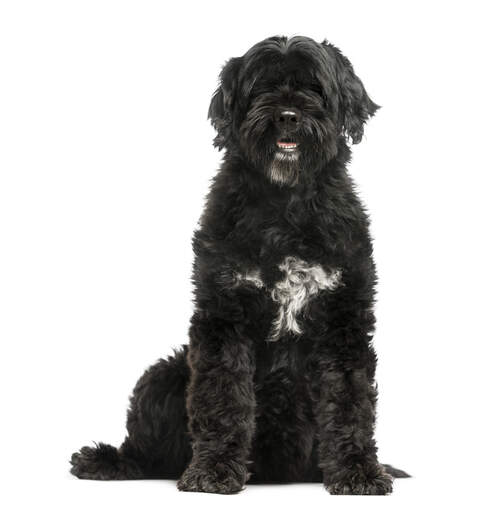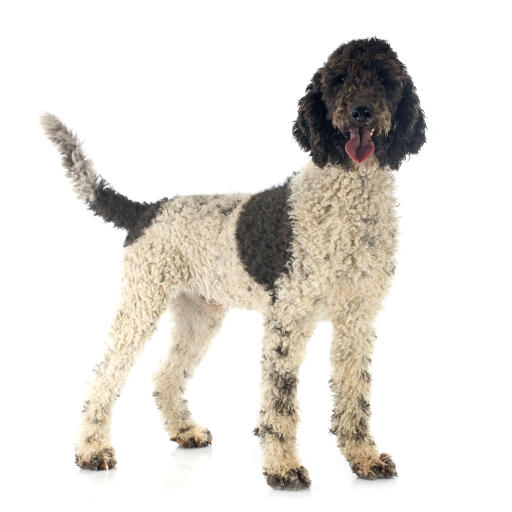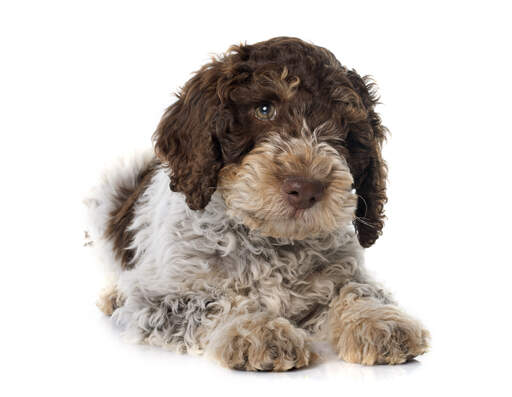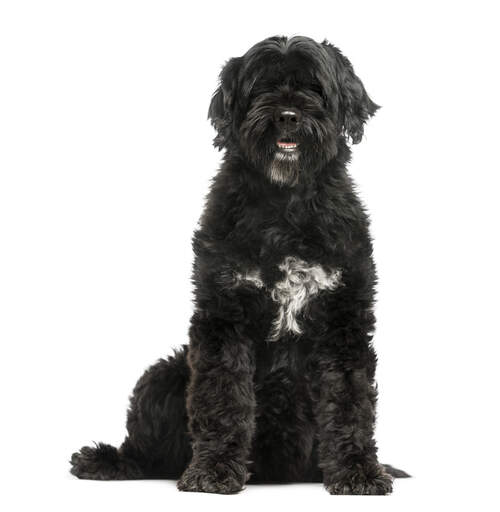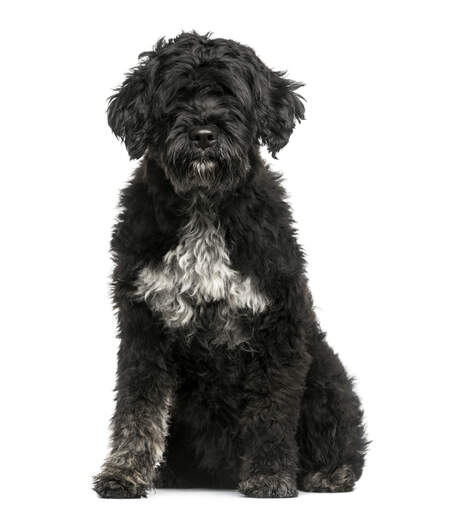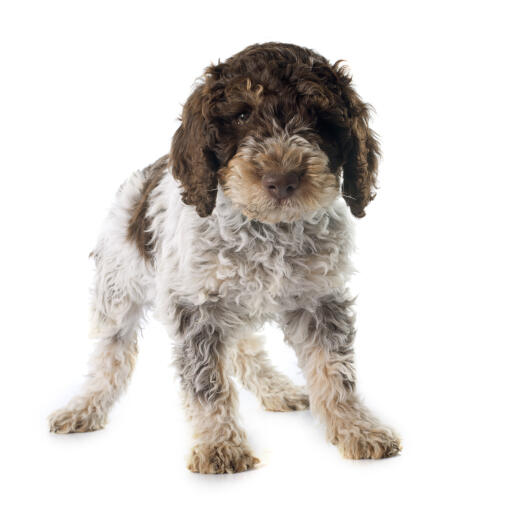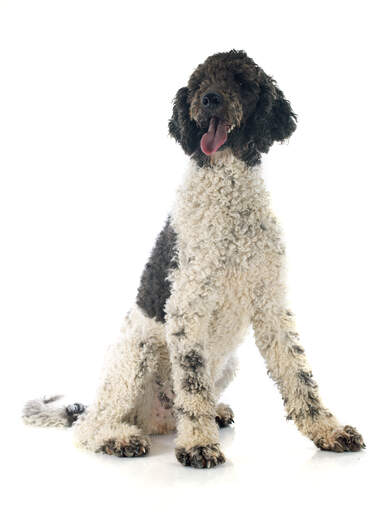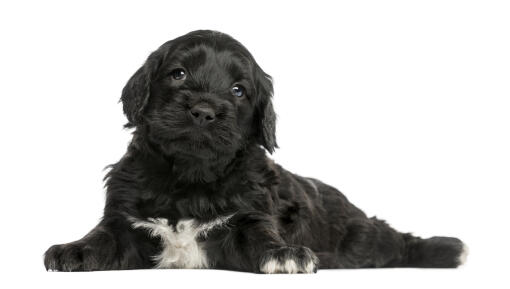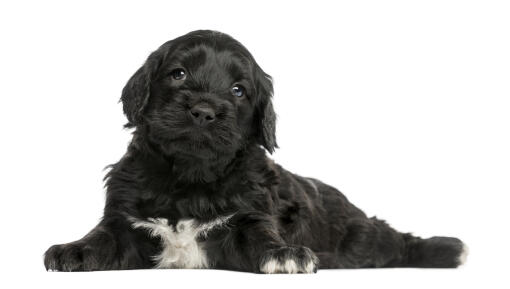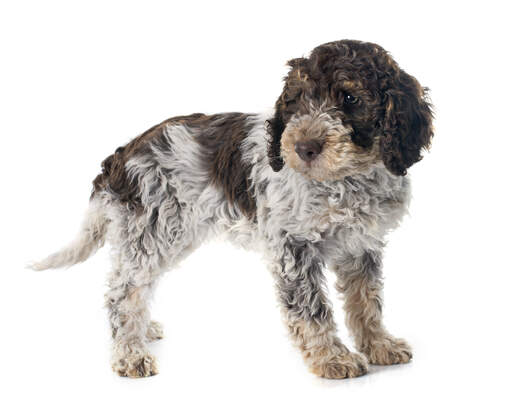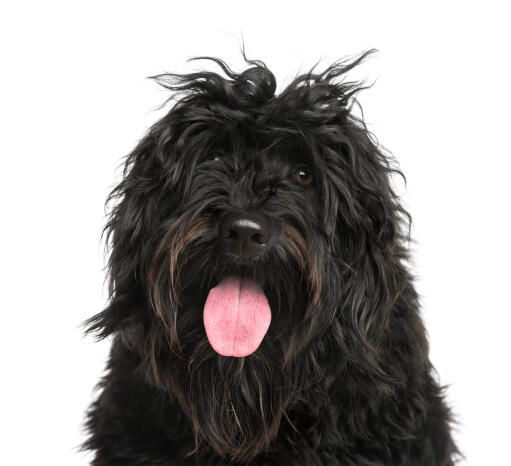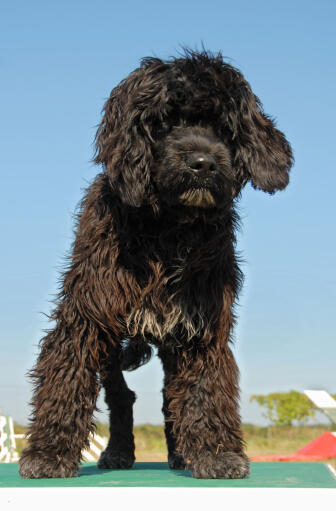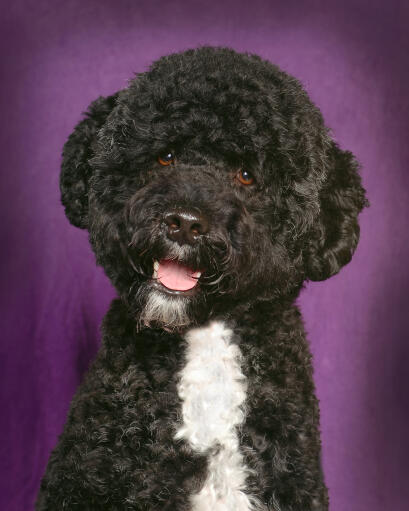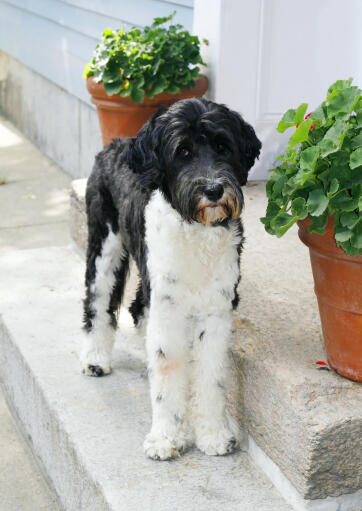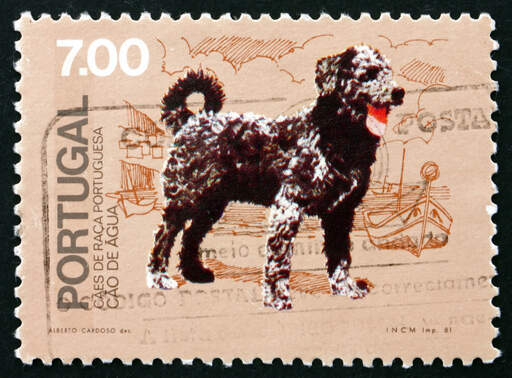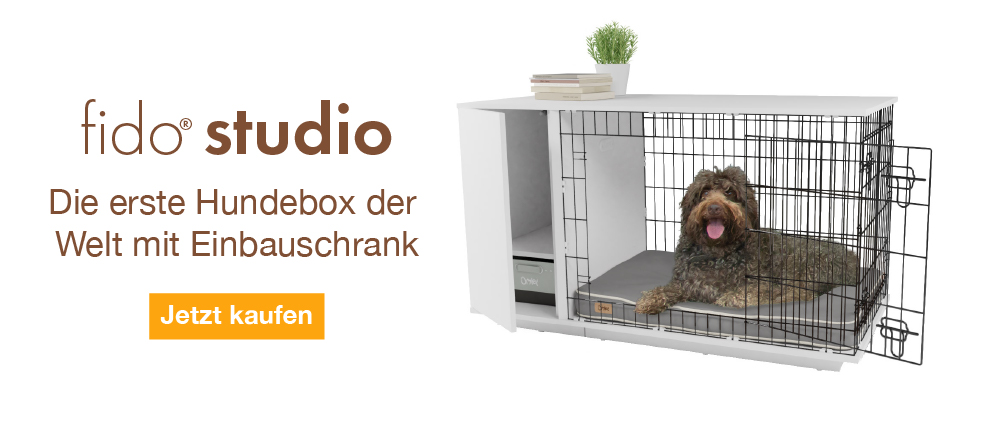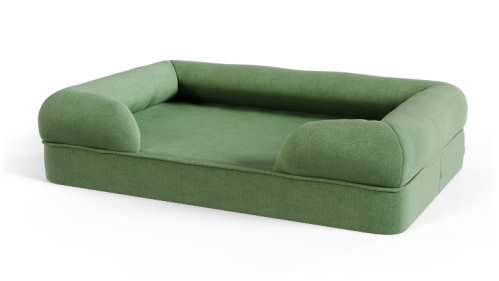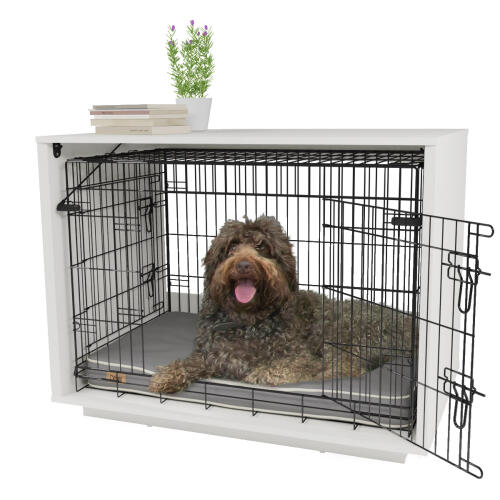Portugiesische Wasserhund















Geschichte
The Portuguese Waterdog originates from Portugal where is was used by fishermen to 'herd' fish into the waiting nets. They would be carried on board the fishing vessel and could also retrieve broken nets from the water. They originated in the Algarve region of Portugal and are sometimes referred to as the Algarvian Fishing Dog or Portie. They would mainly work along the coast of Portugal, but often further afield such as Newfoundland to catch cod. WIth the modernisation of fishing fleets, the breed numbers declined dramatically, but in the 1930's the breed was reintroduced and they are now quite a popular pet, especially in the U.S. It is believed that they are related to the Poodle, as they have non shedding coats.
Verhalten
The Portuguese Waterdog is an affectionate and loyal companion. They need to be around people and tend to attach themselves more to one person, their main trainer. They get along well with respectful children, other dogs and pets if taught from an early age. They are amusing and even tempered dogs, that like to know where you are, but won't be constantly under your feet; knowing you are in another room is fine with them. They can be shy of strangers at first, but once they get to know them, they are happy to be petted.
Portuguese Waterdogs are easy to train as long as you are affectionate towards them. They learn quickly and seem to have a desire to learn new tasks. Being a working breed, the hardest thing is keeping them amused. If bored, they can become destructive like many breeds, but they are generally content to be around you and calm in the home. They are vocal, but this tends to be in the form of different noises, whines and other vocalisations. They are often used as hearing dogs for the Deaf, Mobility dogs and assisting Epileptics with seizure response, as they are so in tune with their owner. Using positive reinforcement and food rewards help in their training and they do well in obedience trials and agility.
The Portuguese Waterdog needs a lot of exercise. A long daily walk and preferably swim will help tire them out and keep them calm indoors. They have immense stamina and can walk/swim for hours. They are no couch potato; they need a long walk every day to keep them happy and some owners struggle to keep up with their exercise needs. They like to retrieve, especially in water, so this can help tire them out. They rarely stray too far from their owner and recall is excellent.
The coat requires brushing every other day as the hair doesn't fall out, but sticks to surrounding fur. They will need clipping often and many owners use the classic cut, where the coat is closely clipped from the middle of the back to the tail, leaving the thicker fur around the head and chest.
They can suffer Canine Hip Dysplasia and Progressive Retinal Atrophy.
Charakter
Portugese Water Dogs have a sensible and athletic temperament. They are intelligent dogs who enjoy training and exercise. Give them plenty of both and you will have a happy and obedient dog. Unsurprisingly most love water and you will have a hard time stopping them splashing through a muddy puddle. These are social dogs who will usually be a friend to anyone but early socialisation can help ensure this is the case.
Gesundheitliche Probleme
Health problems that may affect Portugese Water Dogs include canine hip dysplasia (CHD), heart disease, Addison's disease (hormonal disease of adrenal gland), progressive retinal atrophy (PRA: degeneration of the retina which can lead to blindness), cancer, allergies, epilepsy and lysosomal storage disease.
Einzelheiten zur Rasse
- Status: Selten
- Lebenserwartung: 12 - 15 years
- Produktgewicht: 18 - 27 kg
- Höhe: 17 - 22"
- Selten: Nein
- Fell: Größe M - Hypoallergen
- Pflegeanforderungen: Täglich
- Stadt oder Land: Beides
- Mindestanforderungen an Umgebung: Großes Haus
- Mindestanforderungen an Garten: Kleiner bis mittelgroßer Garten
- Rassetyp: Arbeitshund
- Version: Größe L
- Energieniveau: Hoch
- Benötigte Bewegung: Bis zu einer Stunde
Fotos der Rasse
